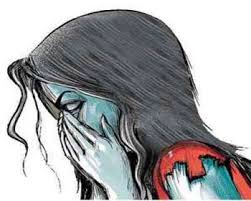Bengaluru, May 6: More than a month after international flights have been barred, Karnataka government is preparing to quarantine all 10,823 of the state''s people poised to return home from overseas amid the Covid pandemic, an official said on Tuesday.
"The state has planned to quarantine all 10,823 passengers coming back to Karnataka. The quarantine guidelines framed as below would be applicable," said Health Commissioner Pankaj Kumar Pandey in a statement.
According to the Government of India, 10,823 Karnataka residents have been stranded abroad by April 30, comprising 4,408 tourists, 3,074 students, 2,784 migrants and professionals and 557 ship crew.
Out of the 10,823 people, the state government is expecting 6,100 to return early as the government has decided to allow Indians stuck abroad to return.
"All the passengers arriving at points of entry (airports and seaports) will be compulsorily screened for symptoms of Covid-19," said Pandey.
Point of entry screening will include self-reporting form verification, thermal screening, pulse oximeter reading, briefing with instructions, categorisation, stamping for some and downloading of Aarogya Setu, Quarantine Watch and Apthamitra apps.
Arriving passengers are also required to declare existing comorbidities such hypertension, diabetes, asthma or any lung disease, organ transplantations, cancer, tuberculosis and other ailments.
Passengers will be categorised into three groups: Category A (symptomatic on arrival), Category B (asymptomatic with co-morbidity or aged above 60 years) and Category C (rest of asymptomatic passengers).
Depending on the category into which the people fall, their quarantine place and time will be determined.
Category A arrivals will be subjected to institutional quarantine for a fortnight, Category B one week quarantine at a hotel or hostel, followed by another week at home, and Category C home quarantine for a fortnight.
Karnataka government is making elaborate arrangements and logistical means, deploying healthcare, police and several other departments into action to handle the huge influx of Kannadigas and state residents.
Pandey has issued a 21-page elaborate standard operating procedure (SOP) guidelines on how to face the international returnees.
 Mangaluru, Apr 1: In a shocking incident, two youths allegedly attempted to rape a high school student in a remote village in Puttur taluk of Dakshina Kannada district.
Mangaluru, Apr 1: In a shocking incident, two youths allegedly attempted to rape a high school student in a remote village in Puttur taluk of Dakshina Kannada district.




Comments
WE MISS THE NEWS : BHAJRANG DAL PROTESTED INFRONT OF THE POLICE STATION TO ARREST THE RAPISTS WITHIN 24 HOURS OTHER WISE , WARNED DISTRICT BUND BE CALLED.
It's shame on their relative. However, BD will not protest here.
Add new comment